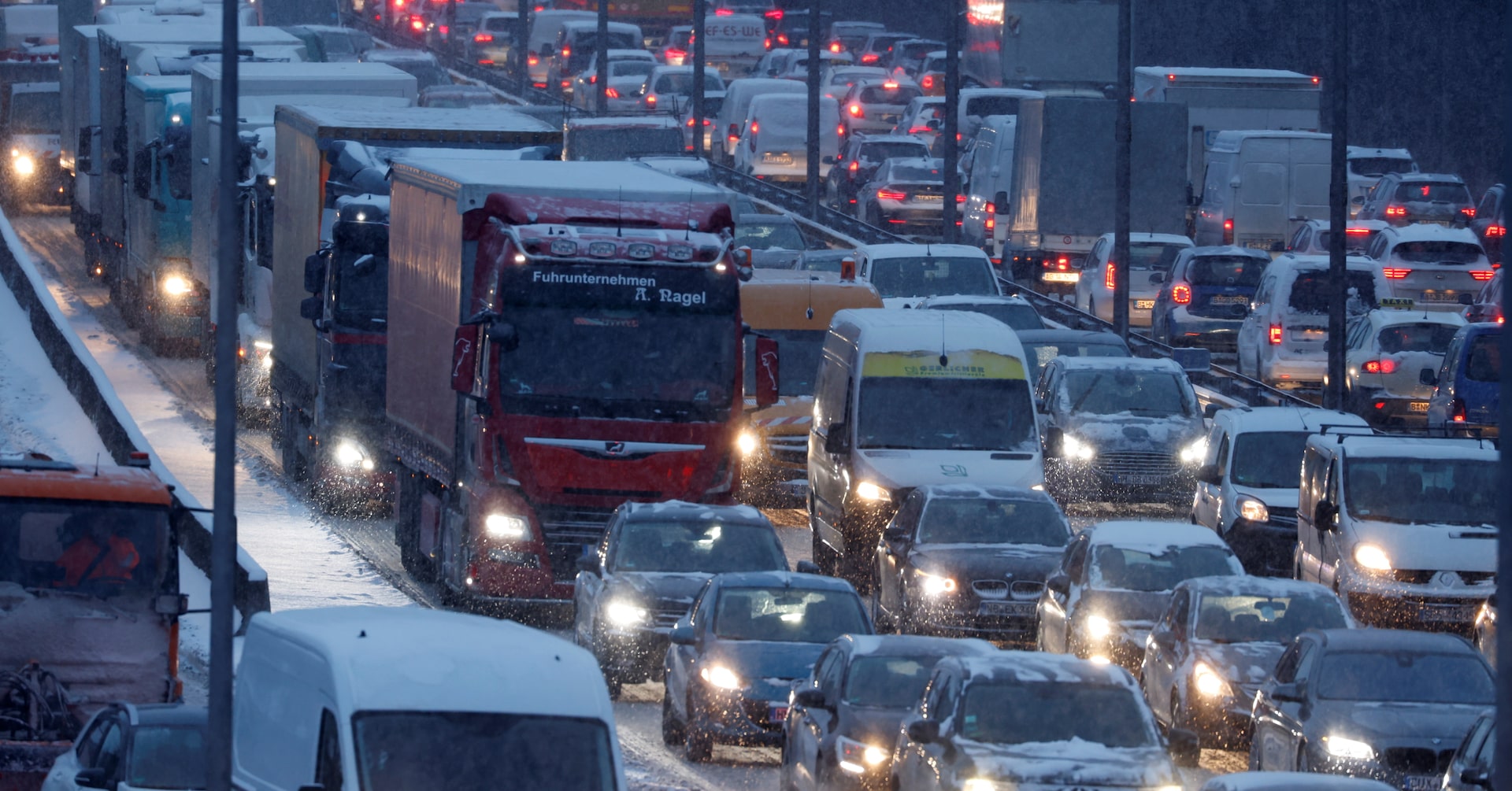Falling European Car Sales Reflect Economic Downturn

Table of Contents
The Impact of Inflation on Car Purchases
Increased inflation and the subsequent rising cost of living are significantly impacting consumer spending habits. With budgets stretched thin, purchasing a new car is often pushed down the priority list. The impact is multifaceted:
- Higher fuel prices and increased maintenance costs: The soaring price of gasoline and diesel, coupled with increased maintenance and repair expenses, makes car ownership a more expensive proposition.
- Reduced disposable income affecting affordability: Inflation erodes purchasing power, leaving less disposable income for large expenditures like new vehicles.
- Increased interest rates making car loans more expensive: Higher interest rates increase the cost of financing a car, making it less accessible to potential buyers.
Statistics from the European Automobile Manufacturers' Association (ACEA) clearly demonstrate this correlation. Data shows a direct inverse relationship between inflation rates and car sales figures across major European markets. For example, countries experiencing higher-than-average inflation saw considerably steeper declines in car sales.
Consumer Confidence and its Correlation with Car Sales
Declining consumer confidence is another crucial factor contributing to falling European car sales. When consumers feel uncertain about their financial future and job security, they are less likely to make significant purchases like new vehicles.
- Uncertainty about the future and job security: Economic instability breeds uncertainty, leading consumers to prioritize saving rather than spending.
- Preference for saving money instead of spending on non-essential items: Cars are often viewed as a non-essential expense, especially when facing financial insecurity.
- Impact of geopolitical instability on consumer sentiment: Global events and geopolitical tensions further exacerbate anxieties and dampen consumer confidence.
Data from consumer confidence indices across Europe strongly correlates with the observed downturn in car sales. As consumer confidence dips, so do sales figures, confirming the strong interdependence between these two factors.
The Semiconductor Shortage's Lingering Effect
The global semiconductor shortage, while somewhat easing, continues to significantly constrain car production and limit supply, indirectly impacting sales figures. This shortage has led to:
- Production delays and backlogs at car manufacturers: Manufacturers struggle to produce vehicles at their desired capacity due to a lack of essential components.
- Higher prices due to limited availability: Reduced supply pushes prices upward, further discouraging potential buyers.
- Impact on specific car models and brands: Certain models and brands are more affected than others, depending on their reliance on specific chips.
Reports consistently highlight the ongoing impact of the semiconductor shortage on the European automotive industry, illustrating how production bottlenecks translate to reduced availability and ultimately, lower sales.
Government Policies and their Influence on Car Sales
Government policies, particularly those related to environmental regulations and taxation, also play a crucial role in shaping consumer demand for vehicles.
- Increased taxes on gasoline or diesel vehicles: Higher taxes on polluting vehicles discourage their purchase, shifting demand towards more environmentally friendly options.
- Incentives for electric vehicle purchases: Conversely, government incentives for electric vehicles can stimulate demand in that sector.
- Regulations impacting vehicle emissions and fuel efficiency: Stricter emission standards influence the types of vehicles manufacturers produce and subsequently affect consumer choices.
Different European countries have adopted varying approaches, creating a diverse landscape of automotive policies that significantly influence car sales within their respective borders.
Alternative Transportation Options and Their Growing Popularity
The rise of alternative transportation options is another factor contributing to the decreased demand for privately owned cars.
- Improved public transport infrastructure in some cities: Investment in efficient and reliable public transportation systems provides viable alternatives to car ownership.
- Increased popularity of e-bikes and scooters: Micromobility options are gaining traction, particularly in urban areas, offering convenient and eco-friendly alternatives.
- The growth of ride-hailing apps: Ride-sharing services provide flexible and often cheaper alternatives to owning a car, especially for infrequent drivers.
The growing popularity of these options is clearly visible in usage statistics and directly correlates with a reduced need for personal vehicle ownership, thus impacting overall car sales figures.
Conclusion: Understanding the Downward Trend in European Car Sales
The decline in European car sales is a complex issue stemming from a confluence of factors. Inflation, diminished consumer confidence, the lingering effects of the semiconductor shortage, government policies, and the growing appeal of alternative transportation options all contribute to this downward trend. These factors are intrinsically linked to the broader economic health of Europe, emphasizing the significance of understanding these interdependencies. To stay abreast of the ongoing developments in the European automotive market and its economic implications, follow [Your Website/Publication] for updates on falling European car sales and analysis of European vehicle sales trends.

Featured Posts
-
 15 Minutos De Aventuras Paw Patrol Piratas En You Tube Espanol
May 28, 2025
15 Minutos De Aventuras Paw Patrol Piratas En You Tube Espanol
May 28, 2025 -
 Shotgun Wedding Chic Rebecca Blacks Ama Red Carpet Look In Las Vegas
May 28, 2025
Shotgun Wedding Chic Rebecca Blacks Ama Red Carpet Look In Las Vegas
May 28, 2025 -
 Arsenal Gyoekeres Teljesitmenyertekeles Es Statisztikai Oesszegzes
May 28, 2025
Arsenal Gyoekeres Teljesitmenyertekeles Es Statisztikai Oesszegzes
May 28, 2025 -
 Portekiz Kampi Ronaldo Nun Saskinligi Ve Fenerbahce Nin Sevinci
May 28, 2025
Portekiz Kampi Ronaldo Nun Saskinligi Ve Fenerbahce Nin Sevinci
May 28, 2025 -
 Perjalanan Mudah Penerbangan Direct Bali Ke Jeddah Via Saudia
May 28, 2025
Perjalanan Mudah Penerbangan Direct Bali Ke Jeddah Via Saudia
May 28, 2025
